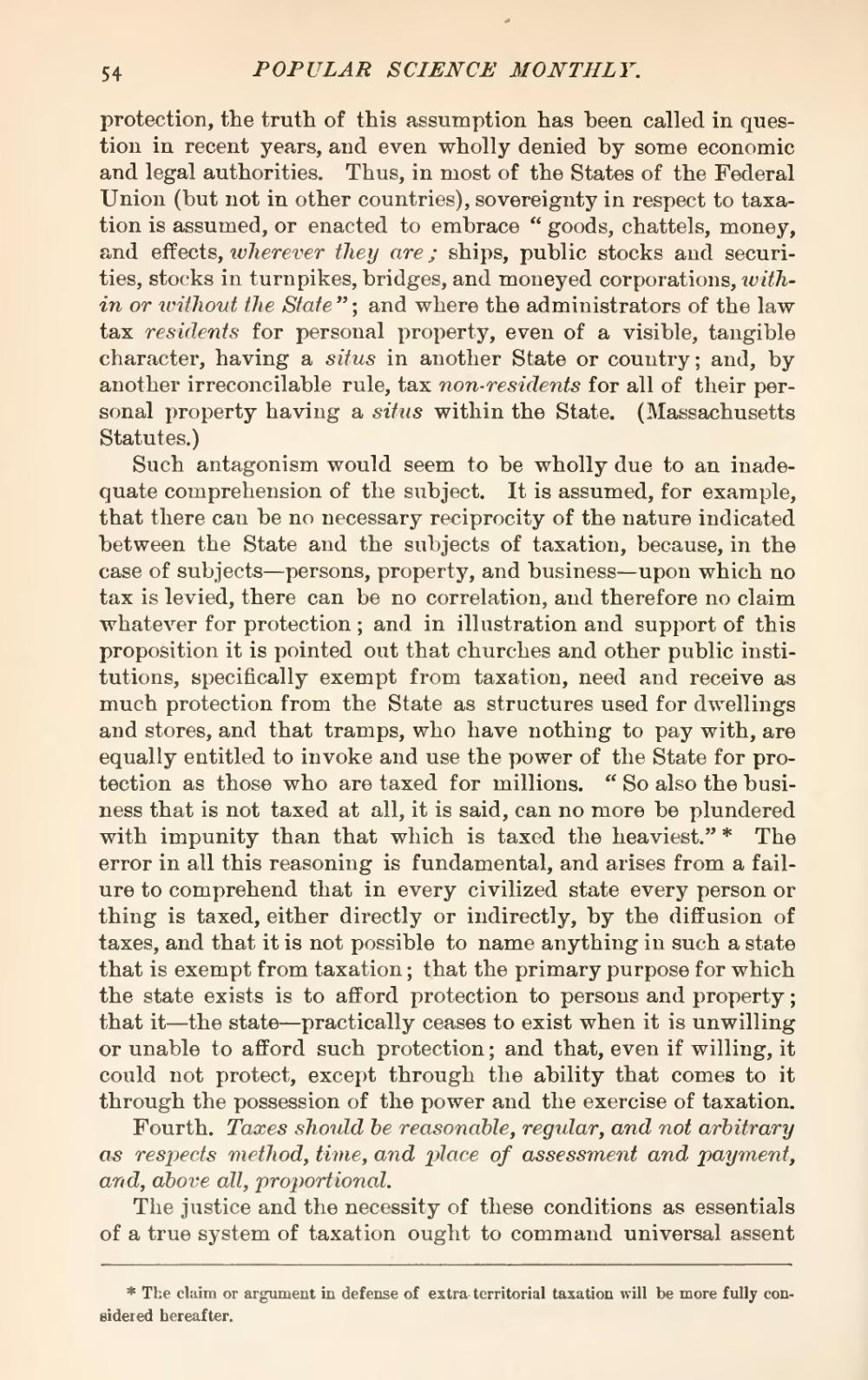protection, the truth of this assumption has been called in question in recent years, and even wholly denied by some economic and legal authorities. Thus, in most of the States of the Federal Union (but not in other countries), sovereignty in respect to taxation is assumed, or enacted to embrace "goods, chattels, money, and effects, wherever they are; ships, public stocks and securities, stocks in turnpikes, bridges, and moneyed corporations, within or without the State"; and where the administrators of the law tax residents for personal property, even of a visible, tangible character, having a situs in another State or country; and, by another irreconcilable rule, tax non-residents for all of their personal property having a situs within the State.(Massachusetts Statutes.)
Such antagonism would seem to be wholly due to an inadequate comprehension of the subject. It is assumed, for example, that there can be no necessary reciprocity of the nature indicated between the State and the subjects of taxation, because, in the case of subjects—persons, property, and business—upon which no tax is levied, there can be no correlation, and therefore no claim whatever for protection; and in illustration and support of this proposition it is pointed out that churches and other public institutions, specifically exempt from taxation, need and receive as much protection from the State as structures used for dwellings and stores, and that tramps, who have nothing to pay with, are equally entitled to invoke and use the power of the State for protection as those who are taxed for millions. "So also the business that is not taxed at all, it is said, can no more be plundered with impunity than that which is taxed the heaviest."[1] The error in all this reasoning is fundamental, and arises from a failure to comprehend that in every civilized state every person or thing is taxed, either directly or indirectly, by the diffusion of taxes, and that it is not possible to name anything in such a state that is exempt from taxation; that the primary purpose for which the state exists is to afford protection to persons and property; that it—the state—practically ceases to exist when it is unwilling or unable to afford such protection; and that, even if willing, it could not protect, except through the ability that comes to it through the possession of the power and the exercise of taxation.
Fourth. Taxes should be reasonable, regular, and not arbitrary as respects method, time, and place of assessment and payment, and, above all, proportional.
The justice and the necessity of these conditions as essentials of a true system of taxation ought to command universal assent
- ↑ The claim or argument in defense of extra territorial taxation will be more fully considered hereafter.
